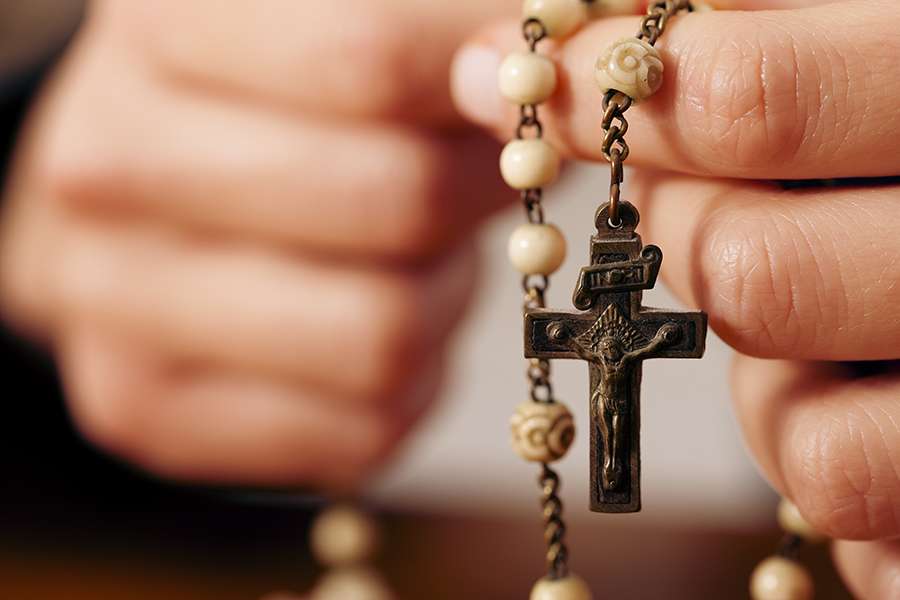
Spiritual Life
Prayer is a covenant and a communion
February 20, 2020
In our discussion of the Catechism of the Catholic Church’s teaching on prayer, we have seen that prayer involves both our minds and our hearts. We have explored what it means to say that prayer is a gift. We move on now to the teaching on “prayer as covenant.”
We read, “Christian prayer is a covenant relationship between God and man in Christ” (no. 2564). Before we can truly understand what that means, we must understand what a covenant is. According to the late Father John Hardon, in the Old Testament a covenant was a “Sacred Agreement into which people entered and it was sealed by a sacred rite. Social covenants were made quite often in the Old Testament. The two parts of a covenant were (a) promise; (b) condition” (from the Father John A. Hardon Archives at therealpresence.org).
Father Hardon goes on to explain that the Greek word used for “covenant” in the New Testament means “two wills.” It is a sacred contract involving the will of God and the will of man. Christ “sets down the conditions,” and promises us grace and a reward. We take an oath of obedience, bending our will to his and relying on his grace (ibid.).
How, then, is Christian prayer a covenant? The catechism says, “It is the action of God and of man, springing forth from both the Holy Spirit and ourselves, wholly directed to the Father, in union with the human will of the Son of God made man” (no. 2564). Christian prayer is always in and through Christ, who signed the covenant in his blood. He promises that when we unite ourselves to him, he will help us pray. As we saw last time, the Holy Spirit steps in and prays on our behalf when we are at a loss for how to pray. He gives us the words to say. In prayer, as in Christ himself, God and man are united, both reaching up to the Father.
What is the condition of this covenant of prayer? Remaining in God’s grace. “If our heart is far from God, the words of prayer are in vain” (CCC, no. 2562).
These truths lead naturally to the next short section, “Prayer as Communion.” “In the New Covenant, prayer is the living relationship of the children of God with their Father who is good beyond measure, with his Son Jesus Christ and with the Holy Spirit” (no. 2565). We often hear our Protestant brothers and sisters talk about having a personal relationship with God. We as Catholics are also called to such a relationship. First, we must enter into and remain in God’s grace through the sacraments, as members of his Body, the church. But God also desires a unique relationship with each one of us as his beloved children. To him, we are not just part of a crowd. Each of us is his son or daughter. He wants us to spend time with him, to share with him our hopes, fears, joys and sorrows. This sharing takes place in prayer, especially personal prayer. Prayer also helps us remain within the covenant, keeping our relationship with God alive.
In a real way, prayer is the means by which we live out our salvation. Remaining open to God in prayer (while also being obedient to the church and participating in the sacraments) helps us fulfill our part of the covenant. Prayer brings us into an increasing communion with the Holy Trinity. It gives us the promised grace to continue to be faithful. Without prayer, we risk falling away.
Connie Rossini is a member of St. Peter Parish in Omaha. She is the author of “The Q&A Guide to Mental Prayer,” now available at amazon.com, and five other books on Catholic spirituality.